Abstract
OBJECTIVE: To develop and test risk-adjustment outcome models in publicly funded mental health outpatient settings. We developed prospective risk models that used demographic and diagnostic variables; client-reported functioning, satisfaction, and quality of life; and case manager clinical ratings to predict subsequent client functional status, health-related quality of life, and satisfaction with services. DATA SOURCES/STUDY SETTING: Data collected from 289 adult clients at five- and ten-month intervals, from six community mental health agencies in Washington state located primarily in suburban and rural areas. Data sources included client self-report, case manager ratings, and management information system data. STUDY DESIGN: Model specifications were tested using prospective linear regression analyses. Models were validated in a separate sample and comparative agency performance examined. PRINCIPAL FINDINGS: Presence of severe diagnoses, substance abuse, client age, and baseline functional status and quality of life were predictive of mental health outcomes. Unadjusted versus risk-adjusted scores resulted in differently ranked agency performance. CONCLUSIONS: Risk-adjusted functional status and patient satisfaction outcome models can be developed for public mental health outpatient programs. Research is needed to improve the predictive accuracy of the outcome models developed in this study, and to develop techniques for use in applied settings. The finding that risk adjustment changes comparative agency performance has important consequences for quality monitoring and improvement. Issues in public mental health risk adjustment are discussed, including static versus dynamic risk models, utilization versus outcome models, choice and timing of measures, and access and quality improvement incentives.
Full text
PDF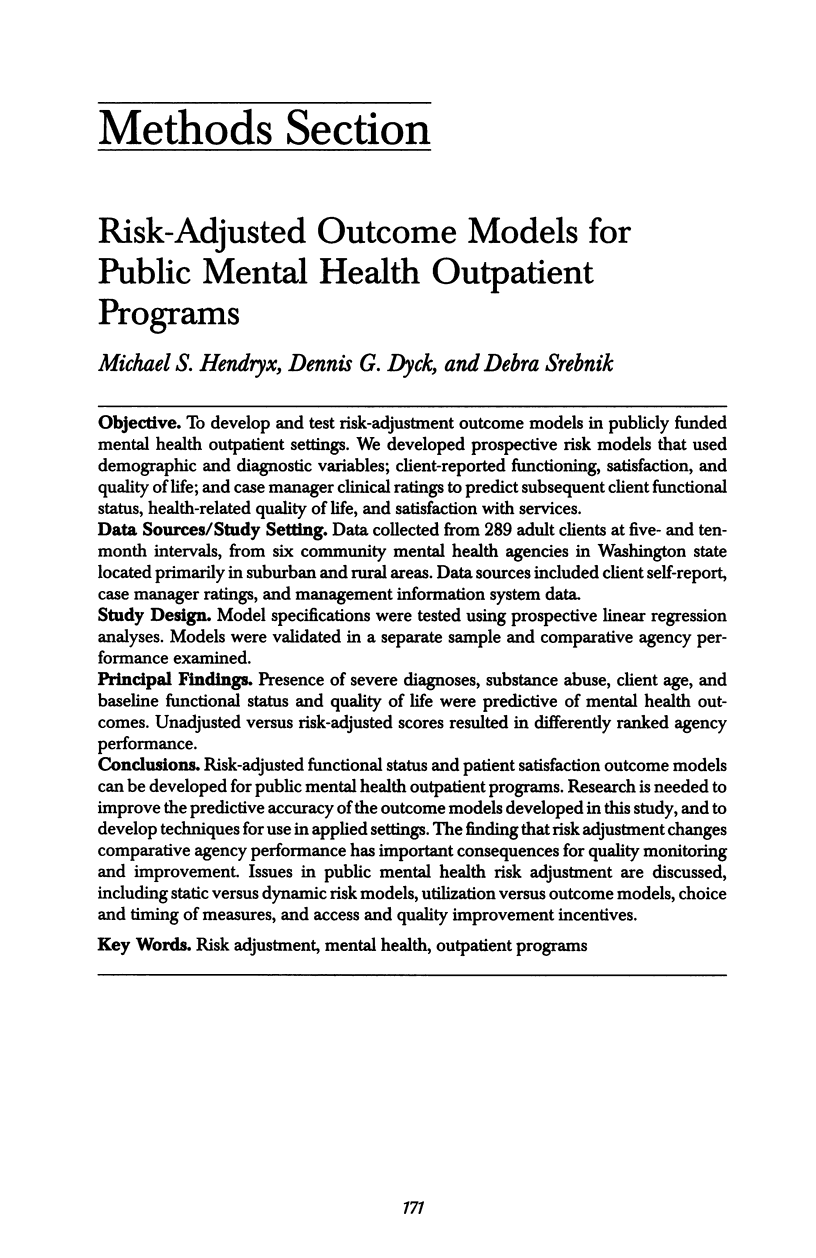
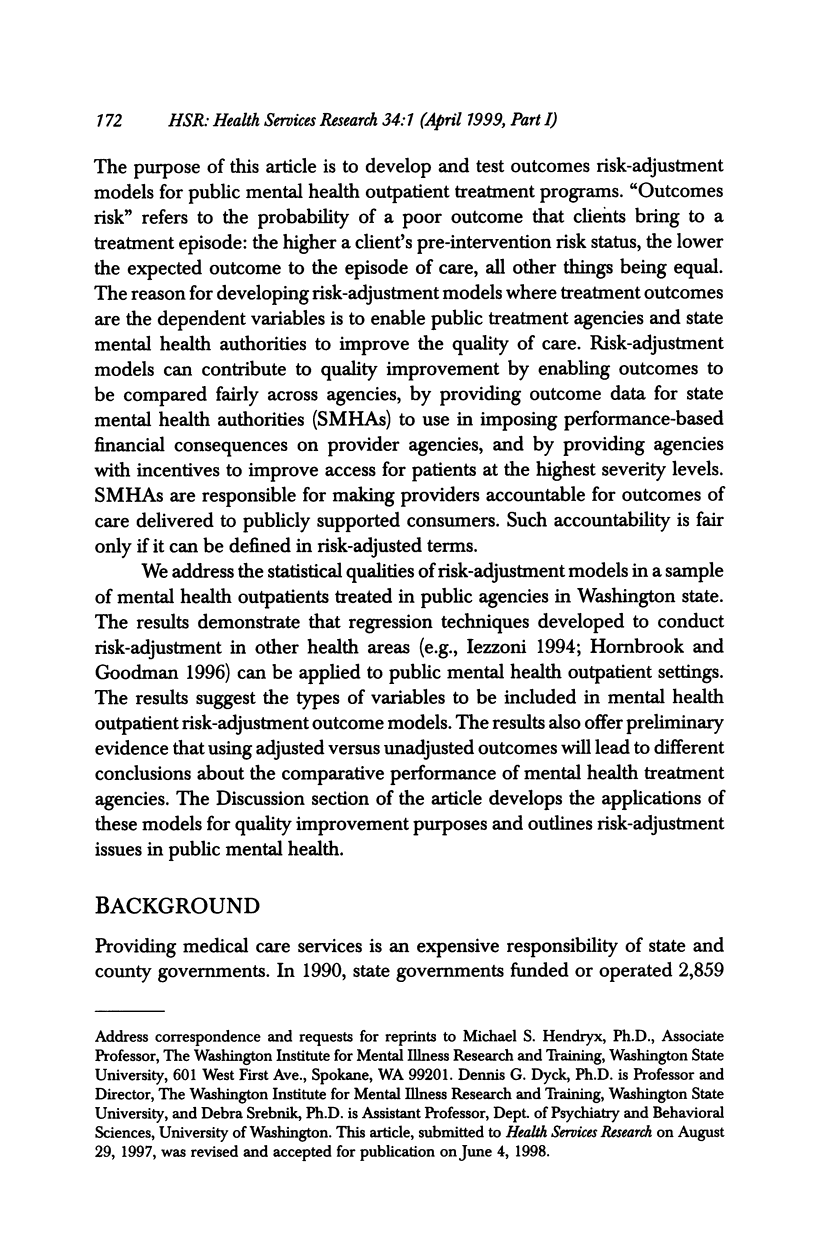
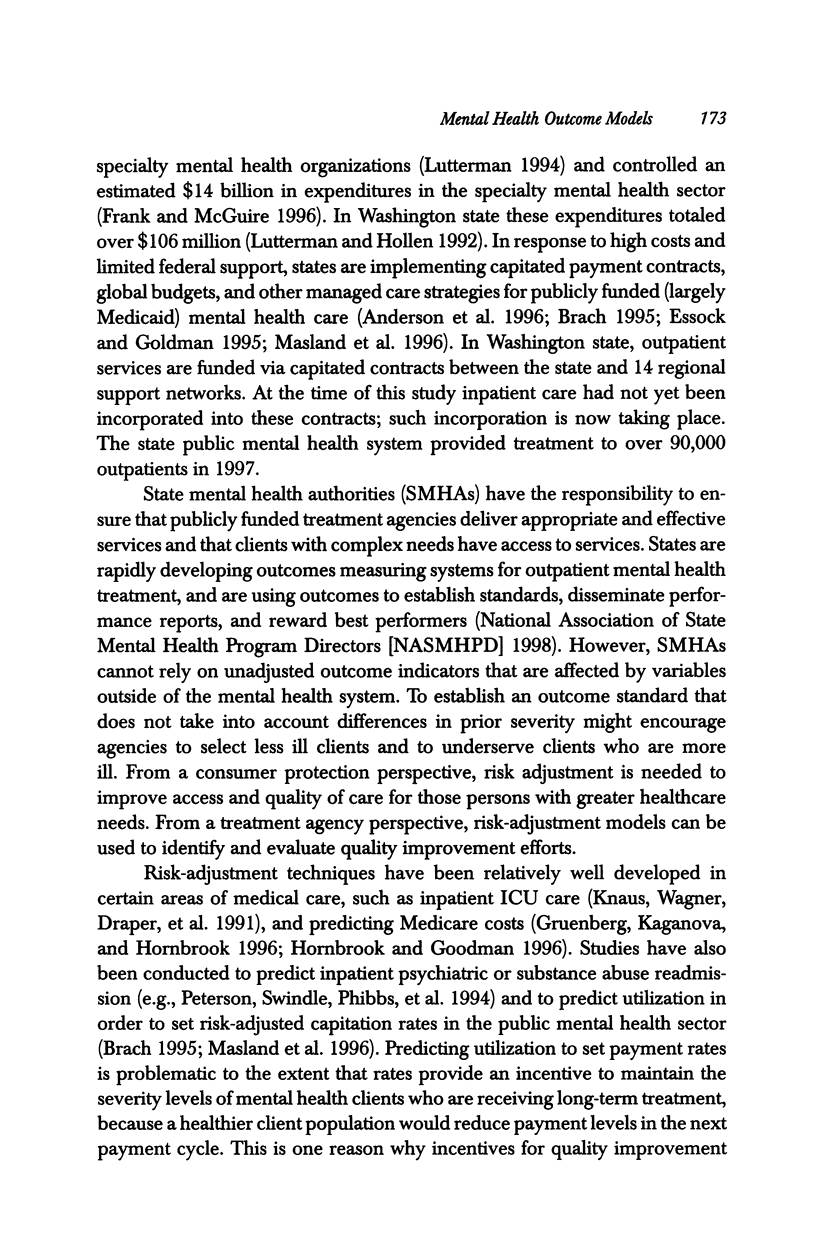
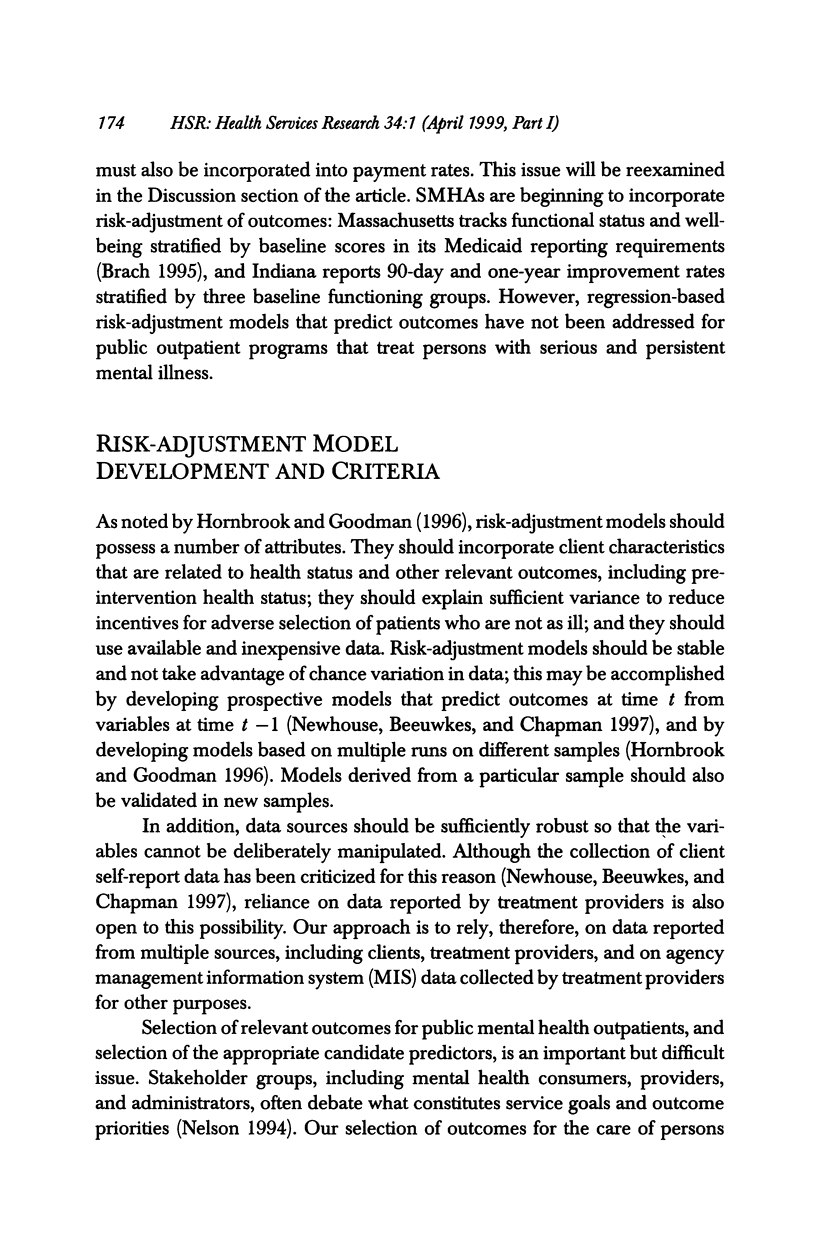
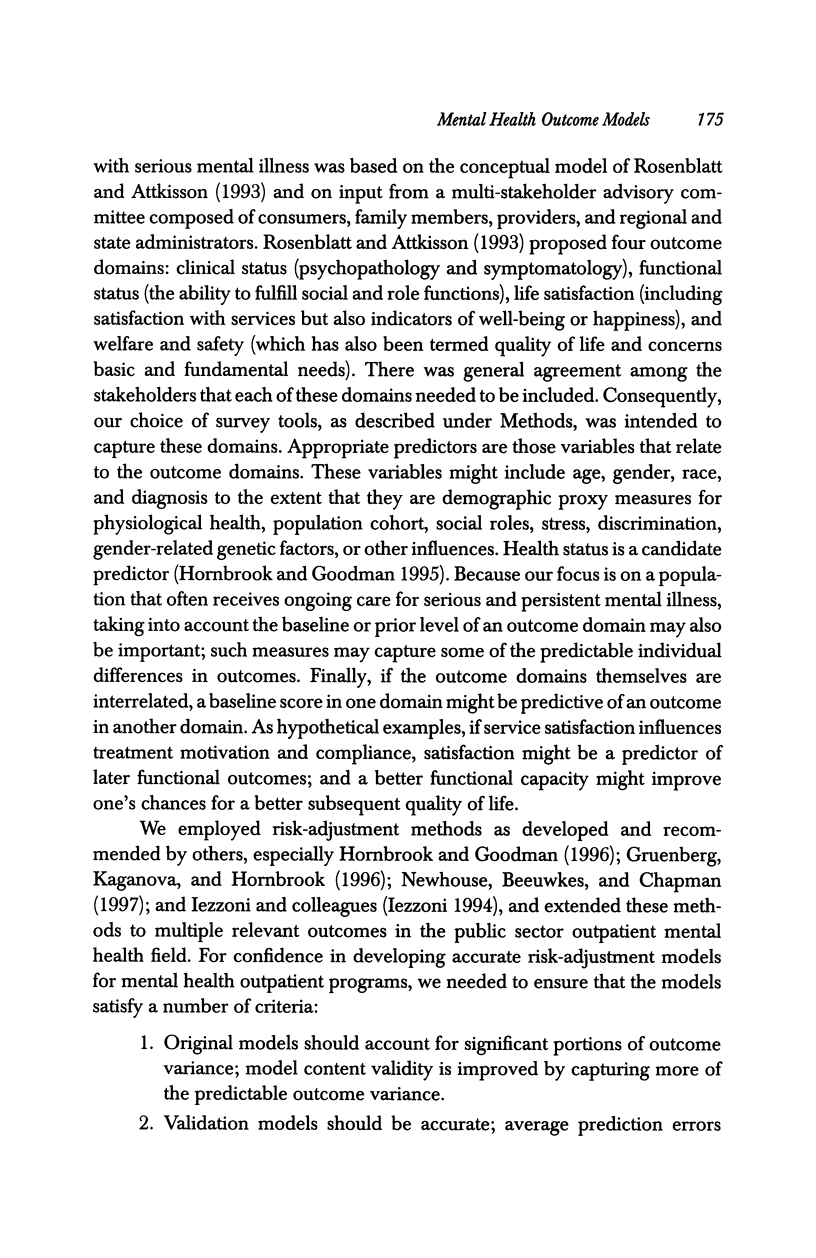
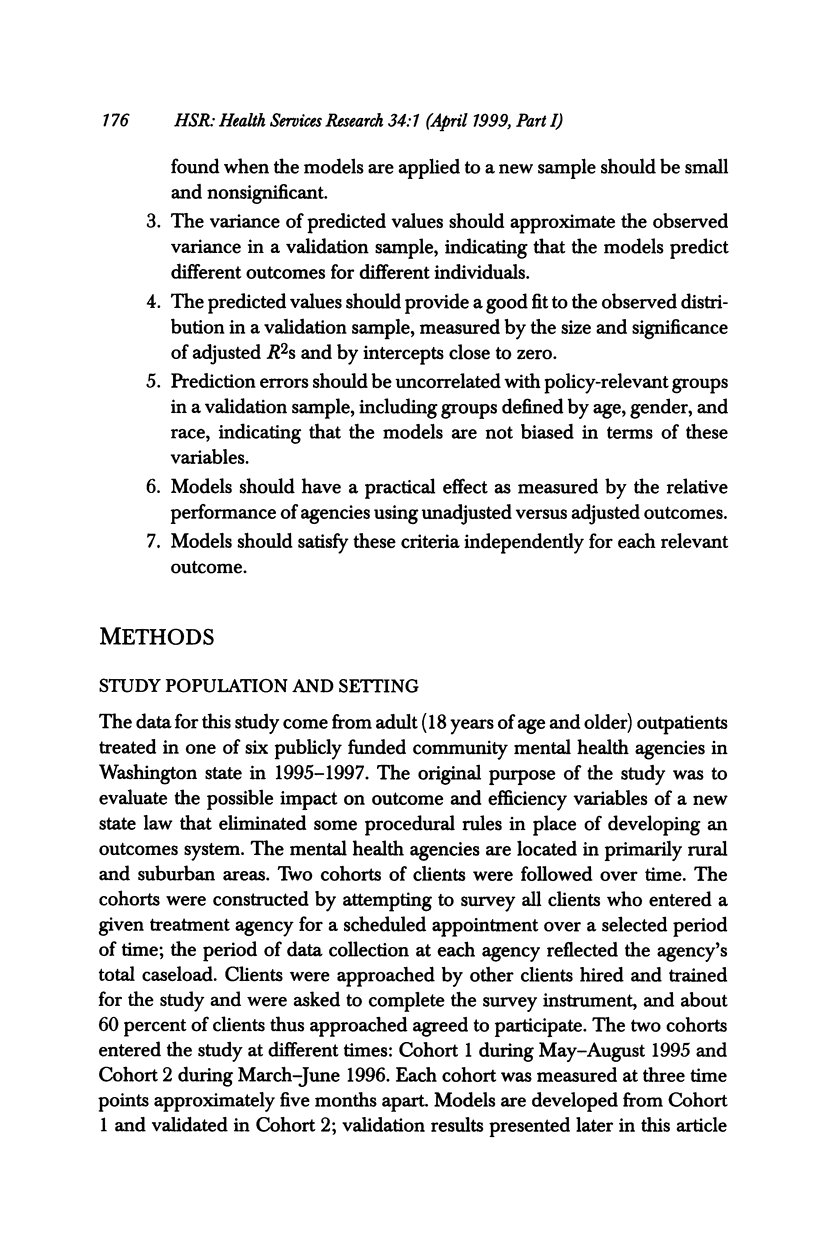
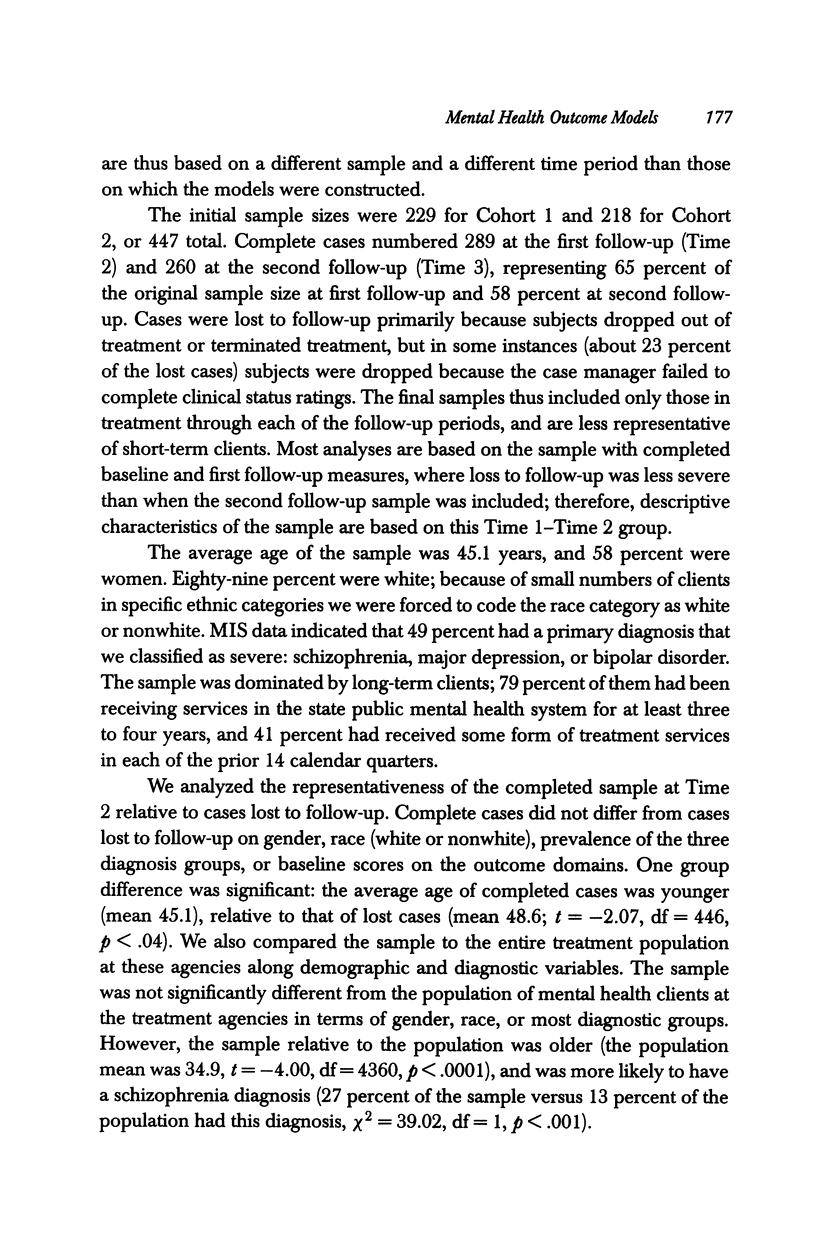
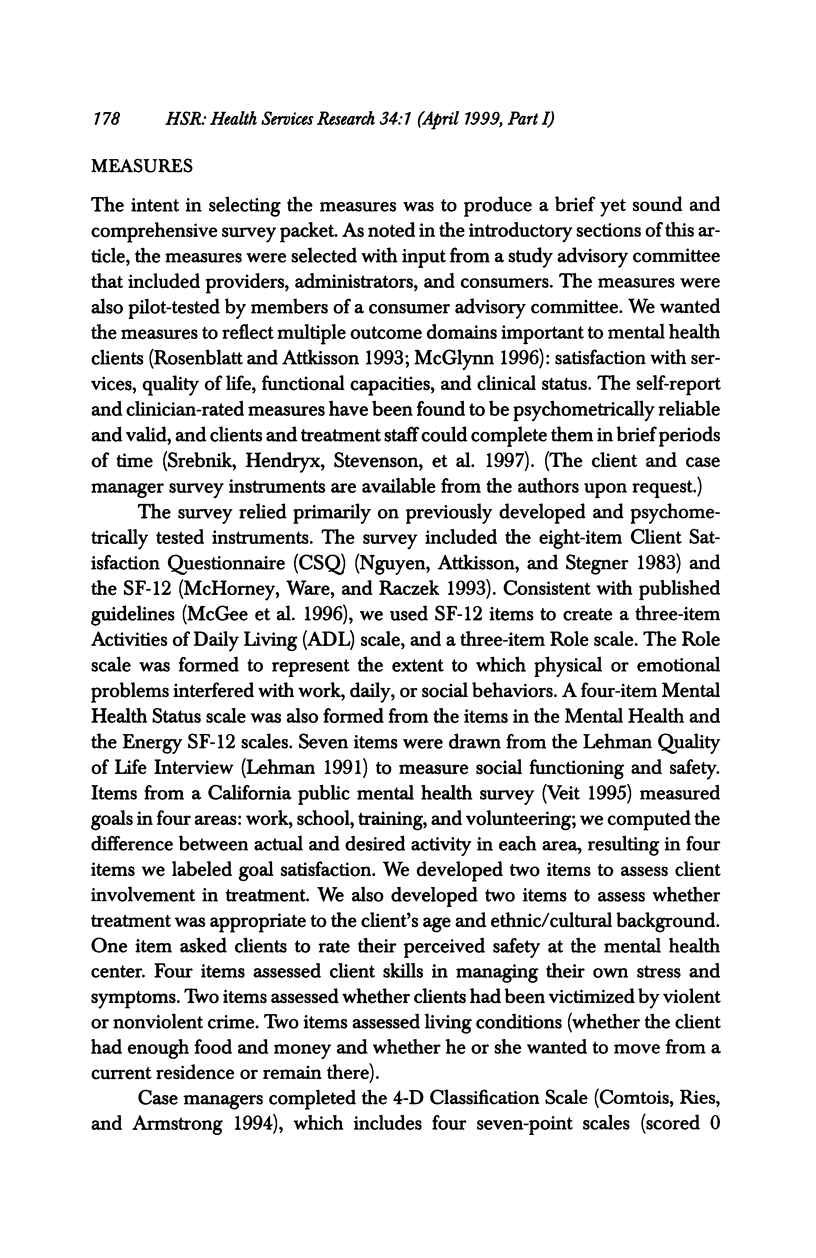
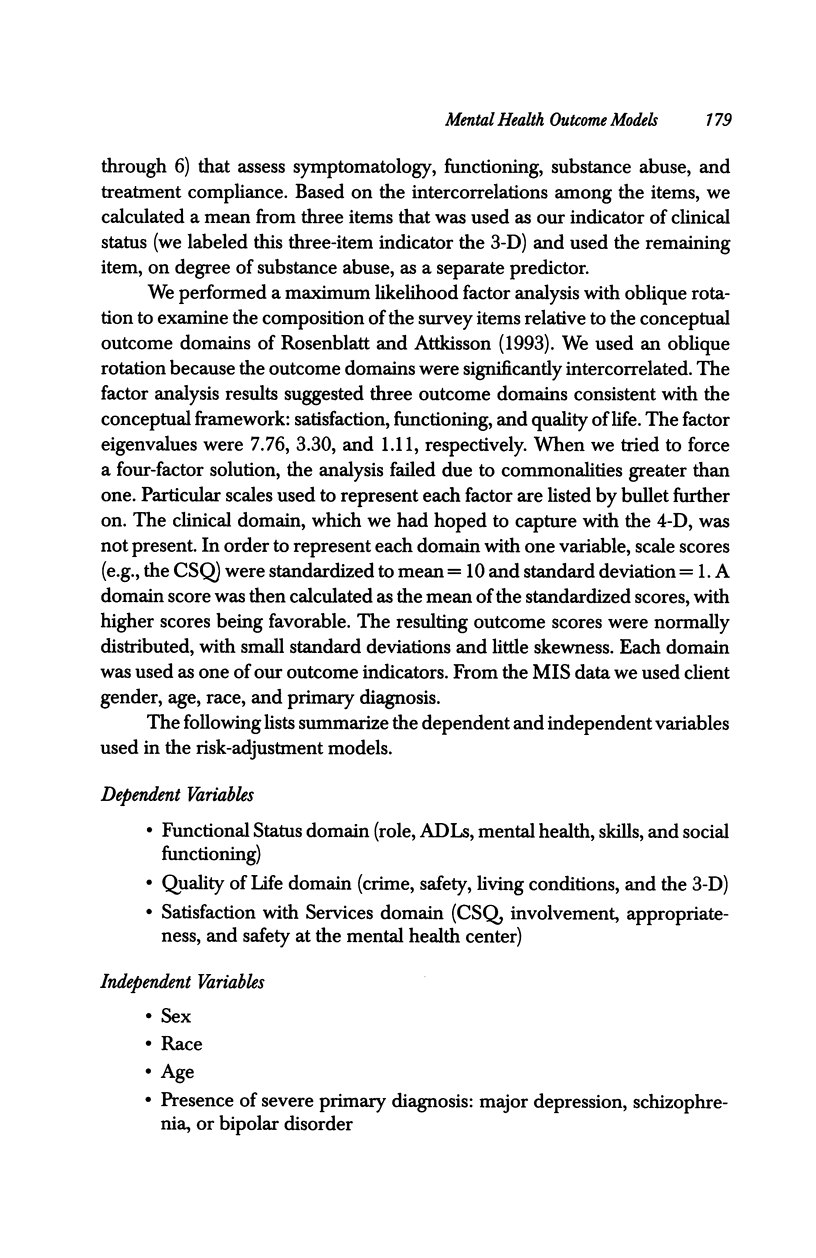
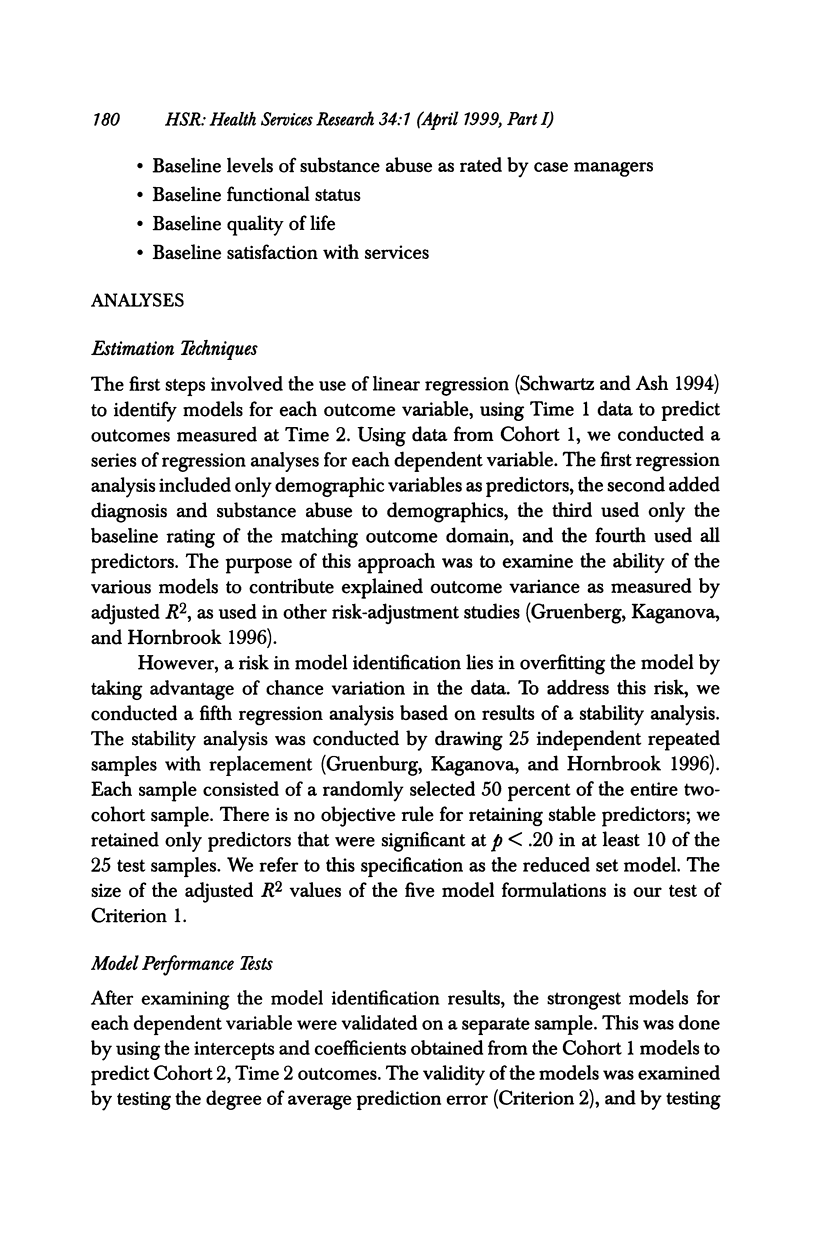
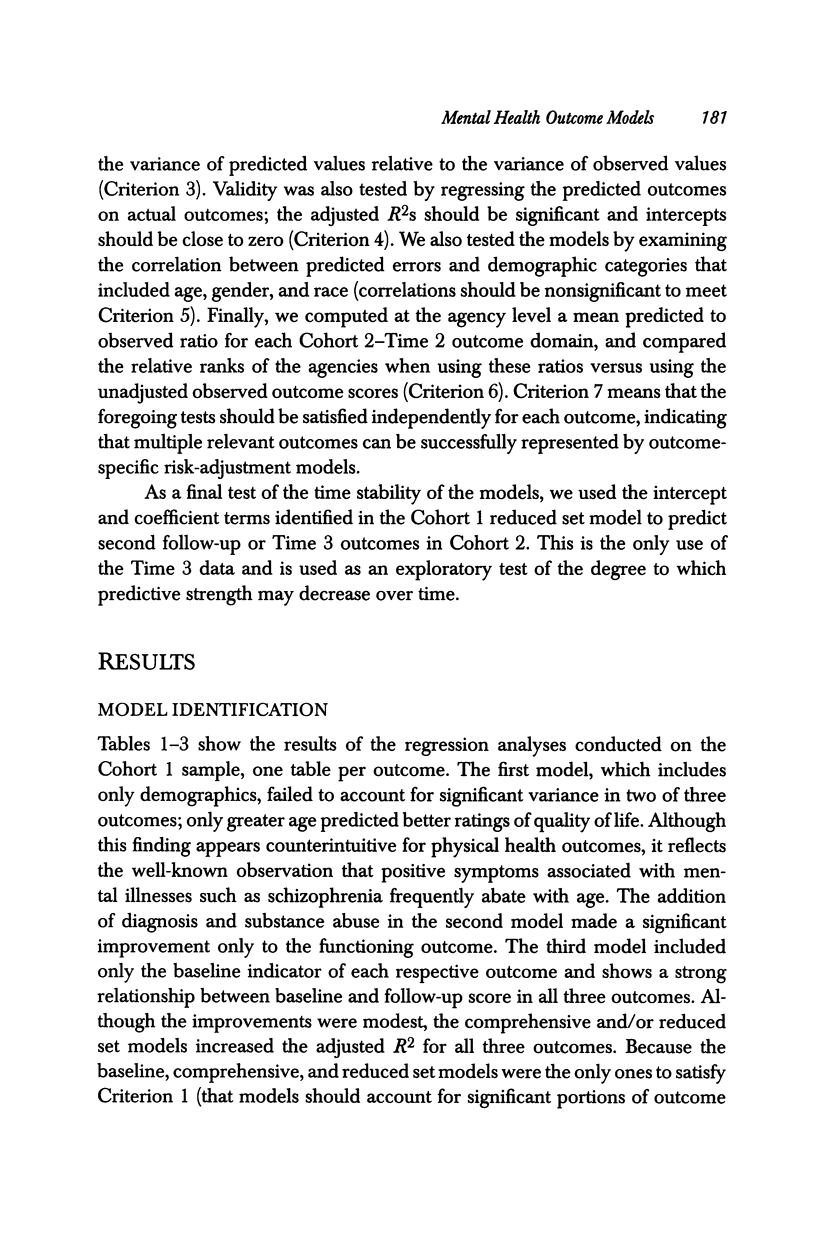
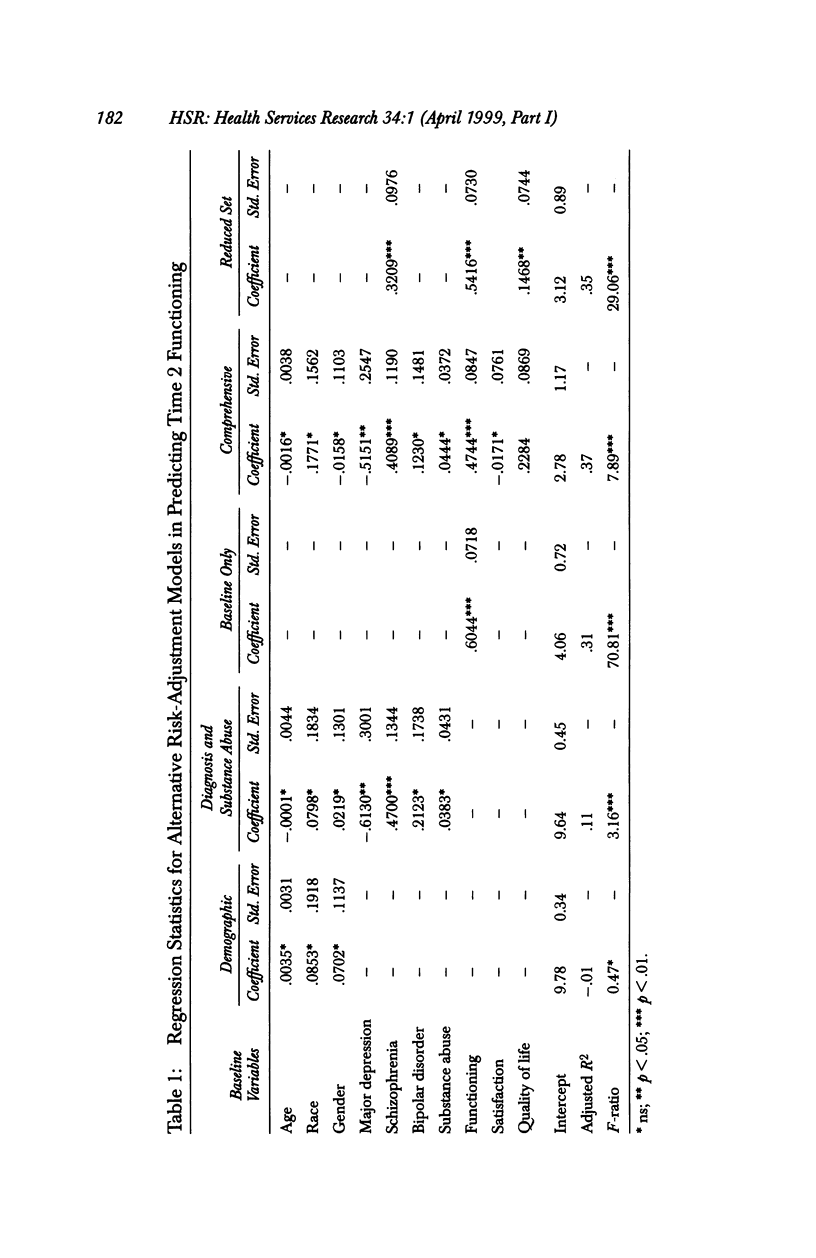
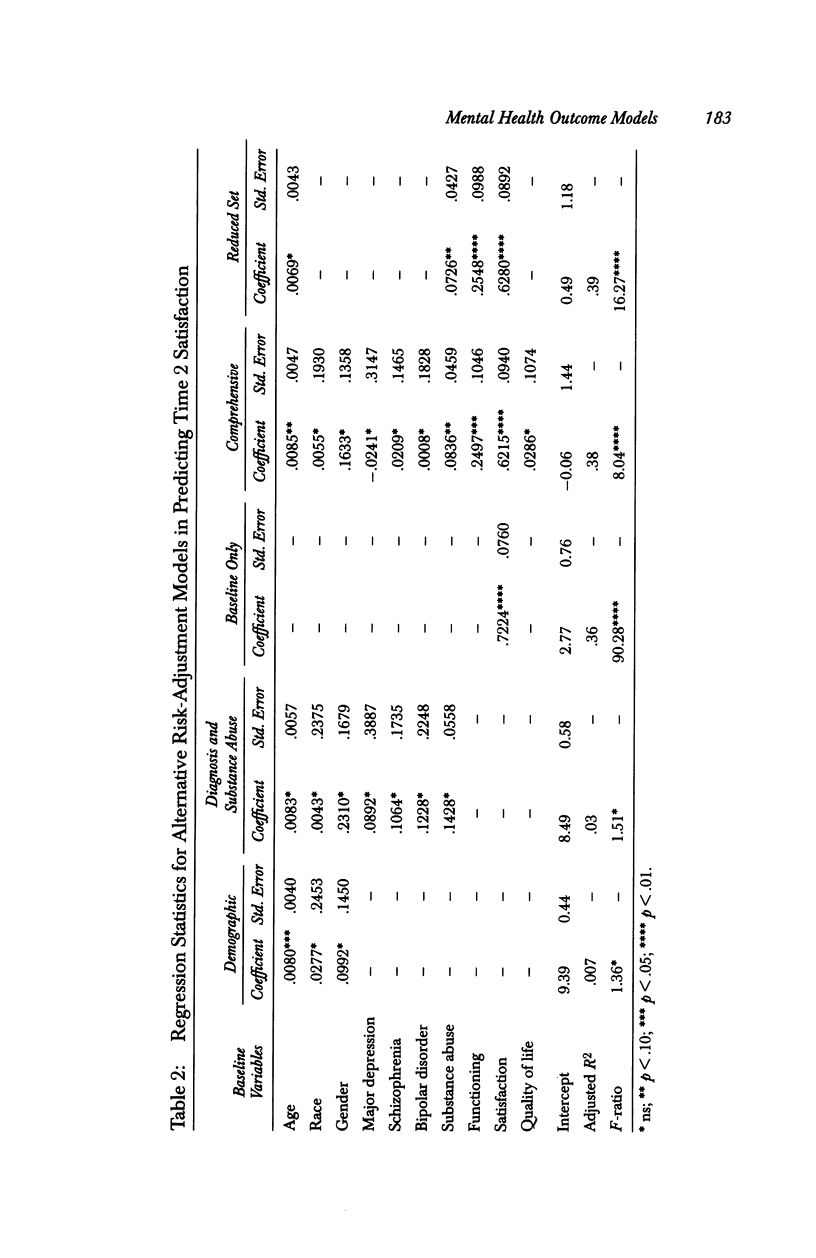
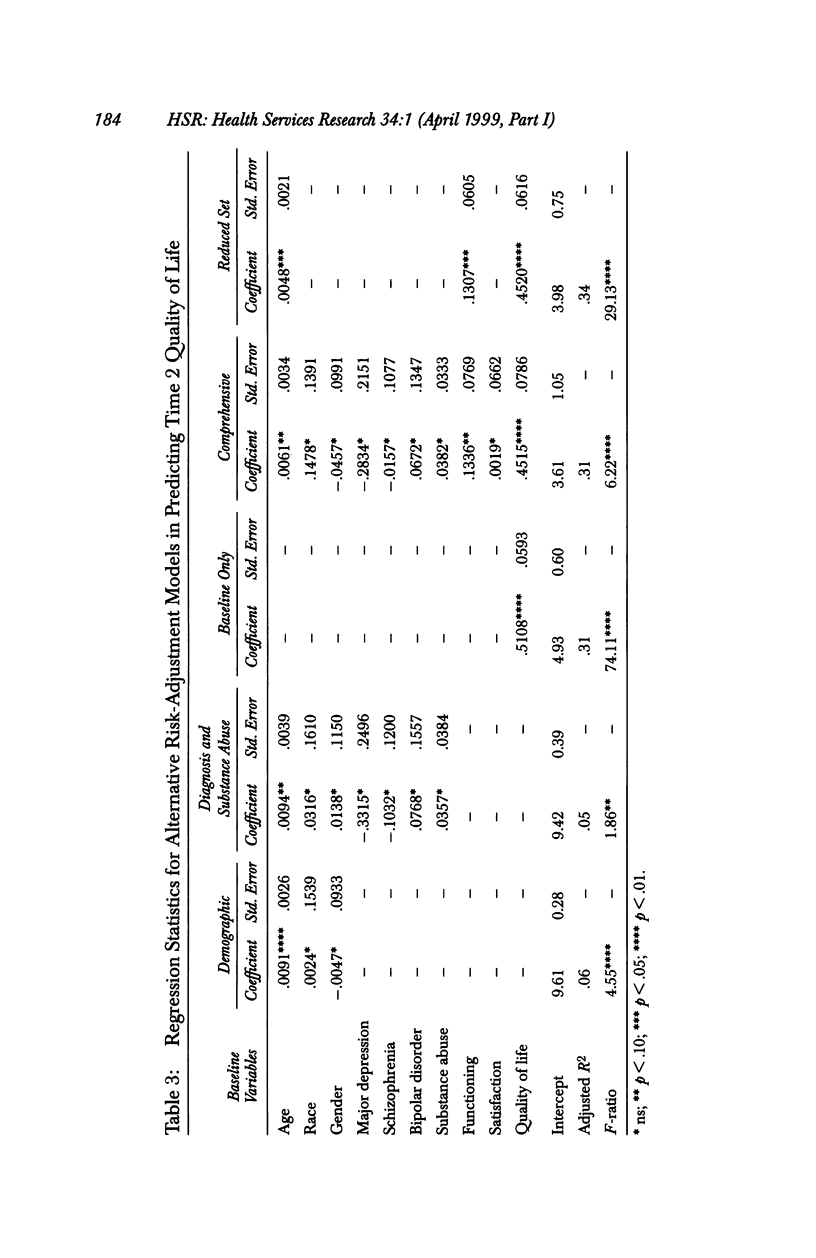
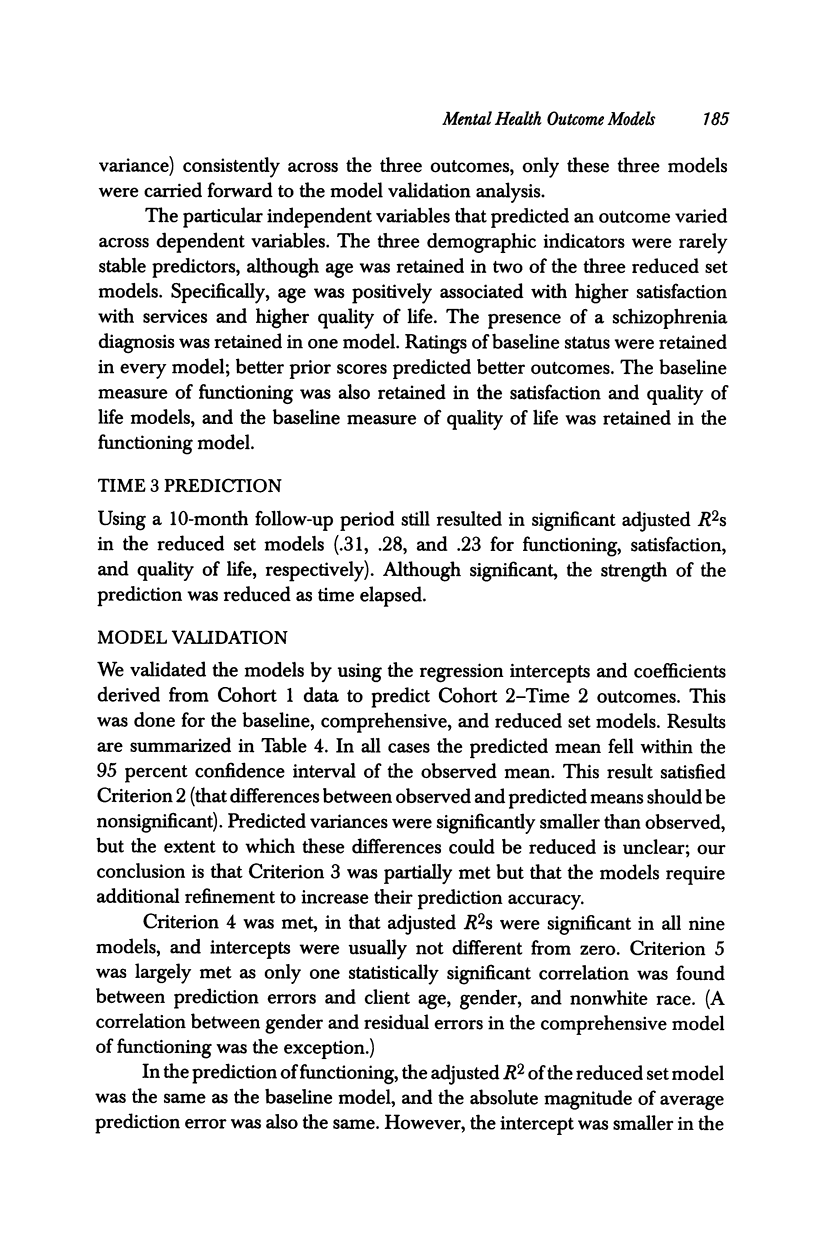
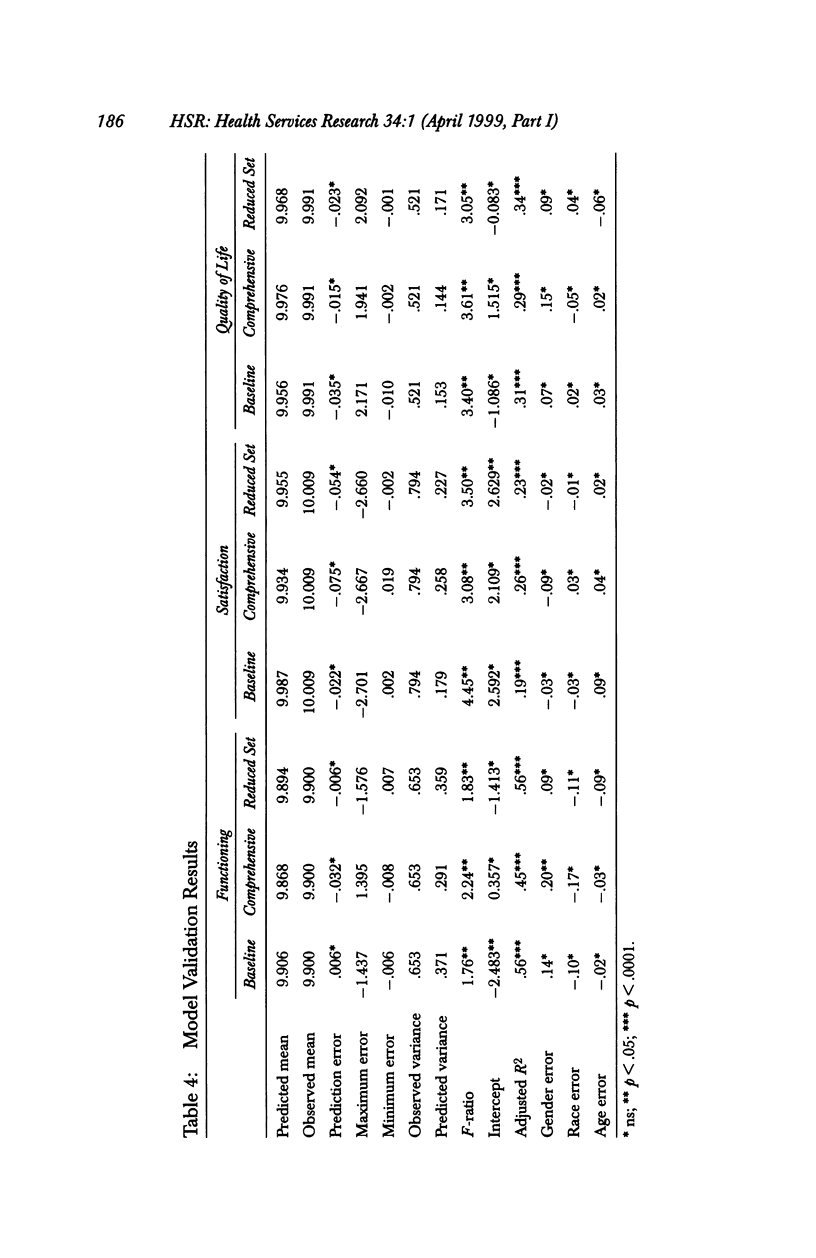
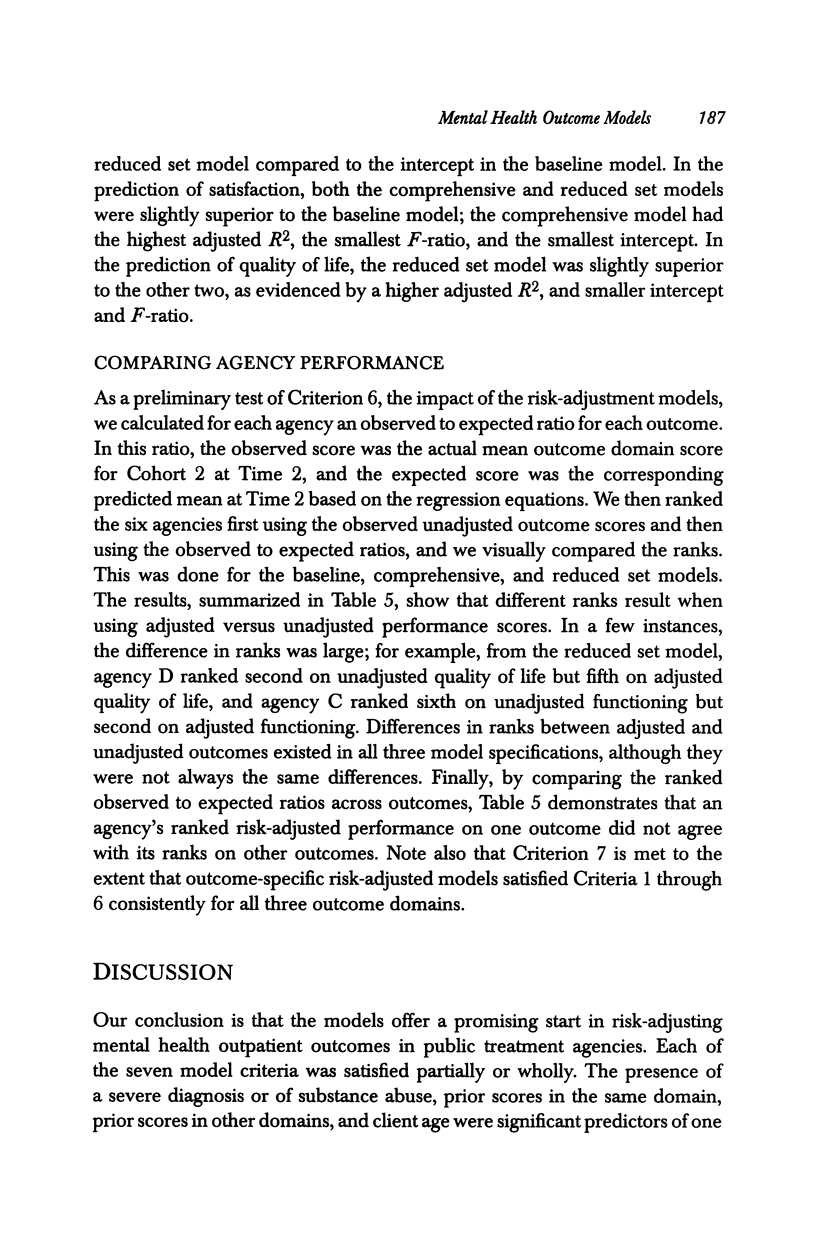
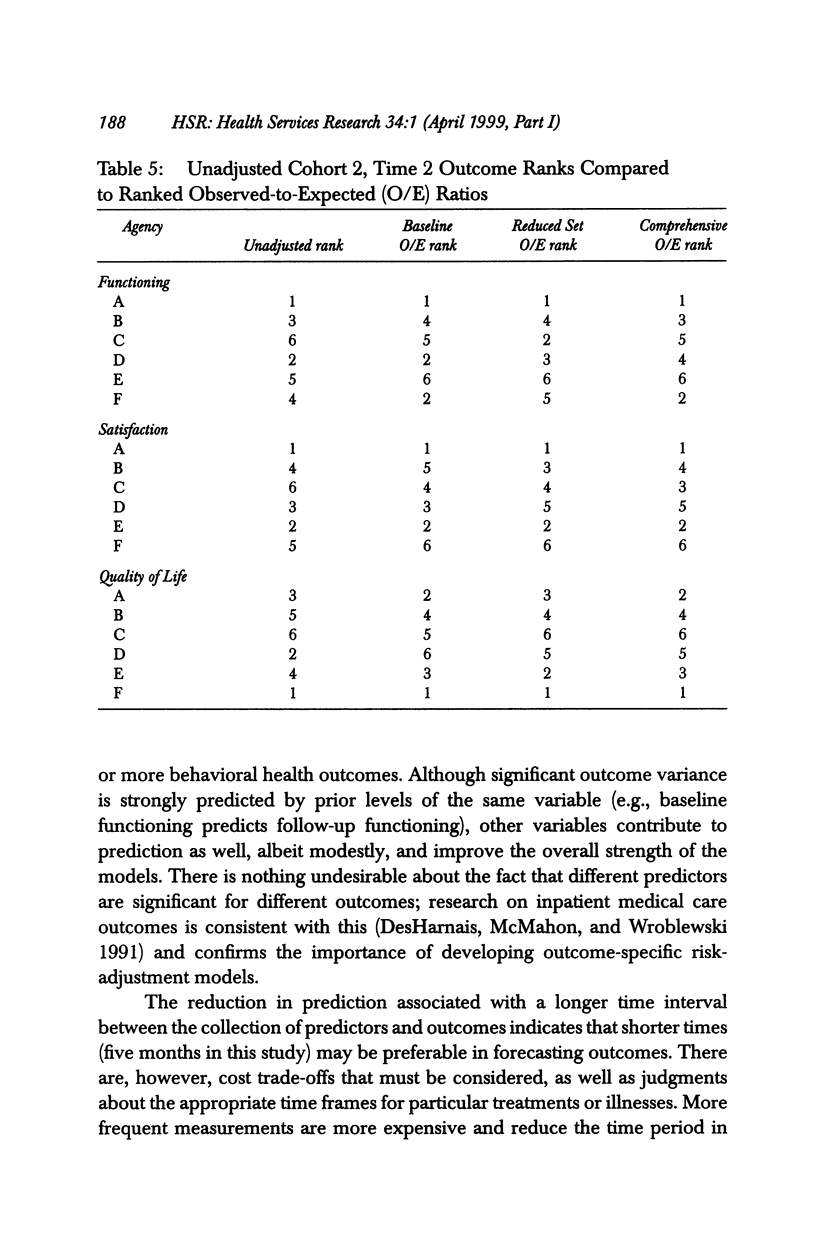
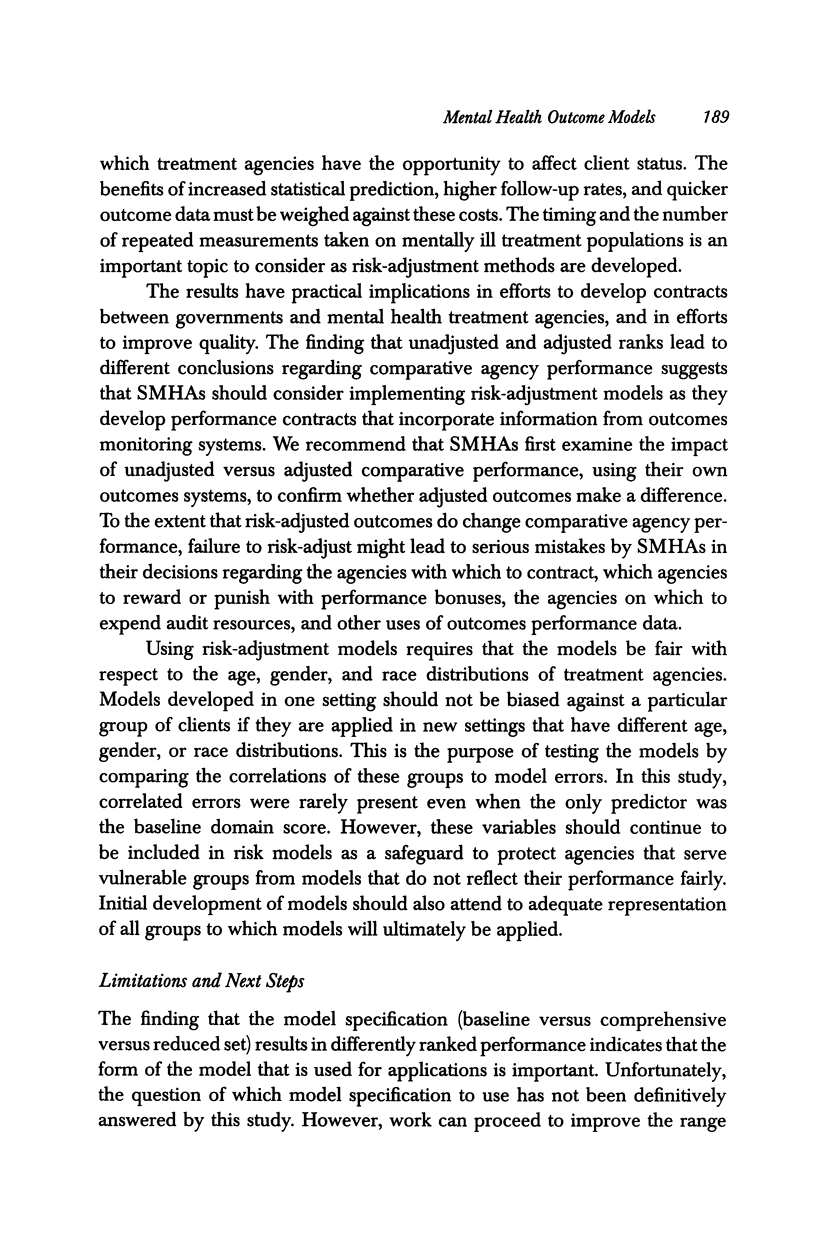
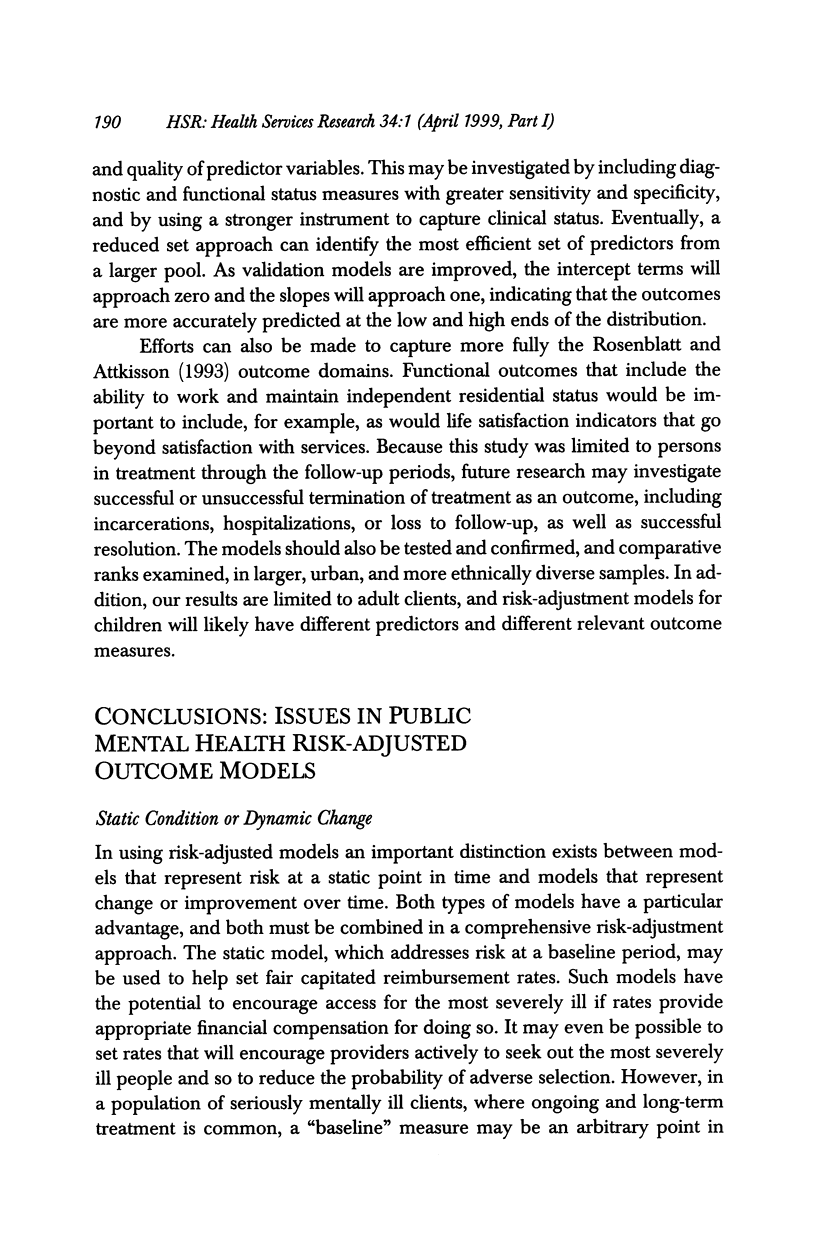
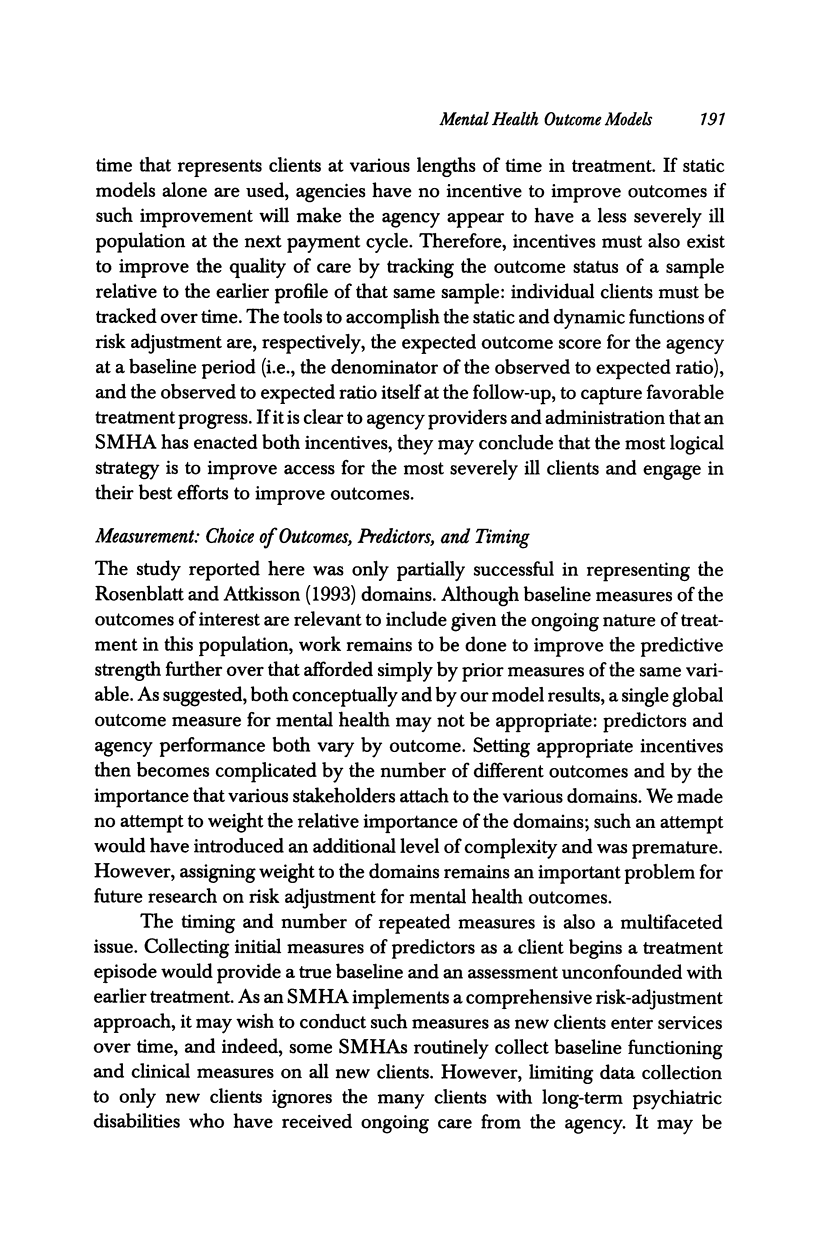
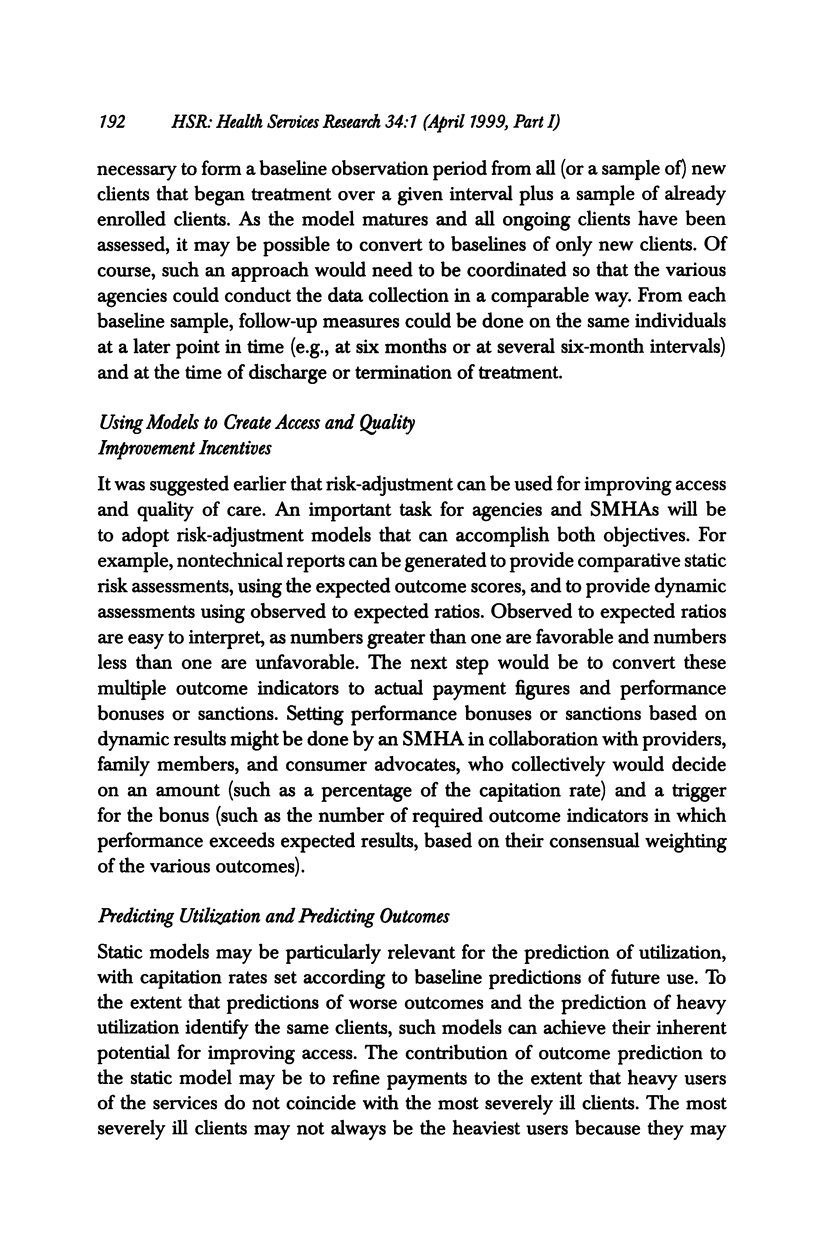
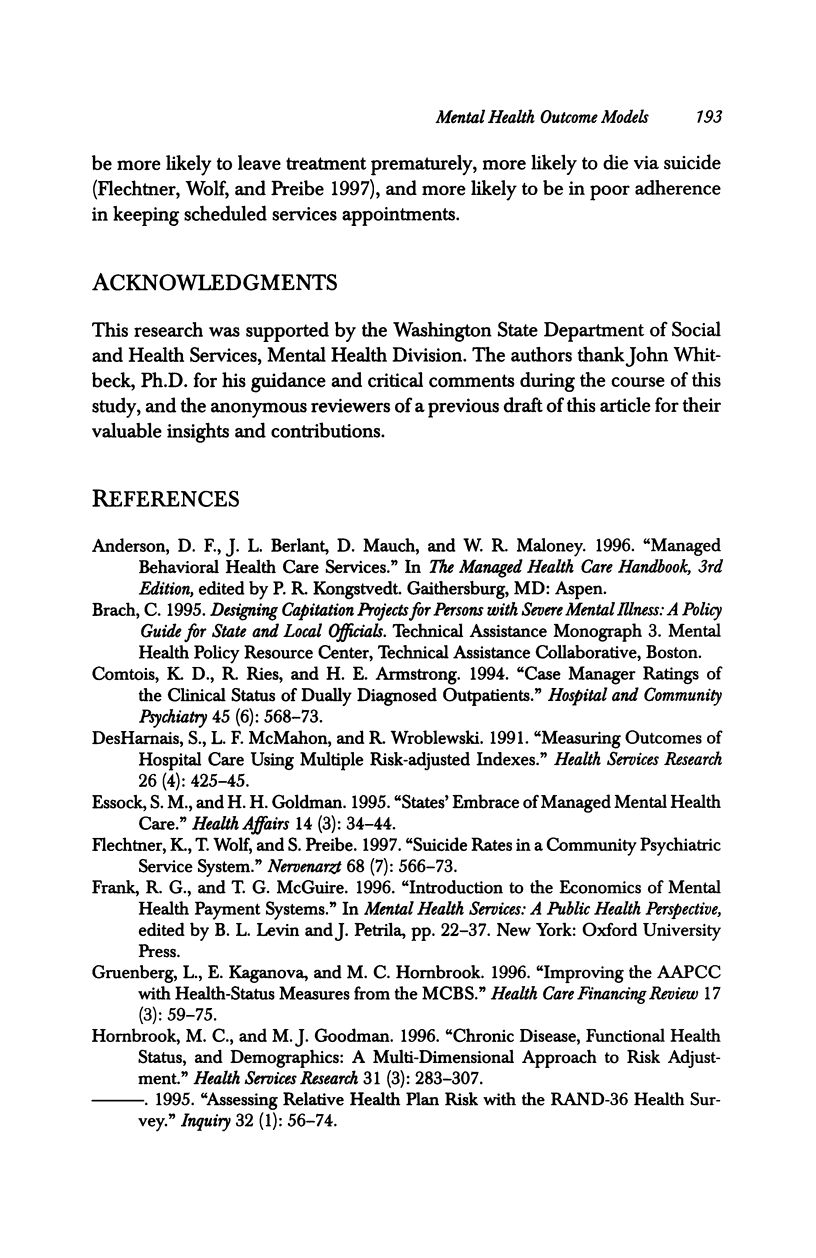
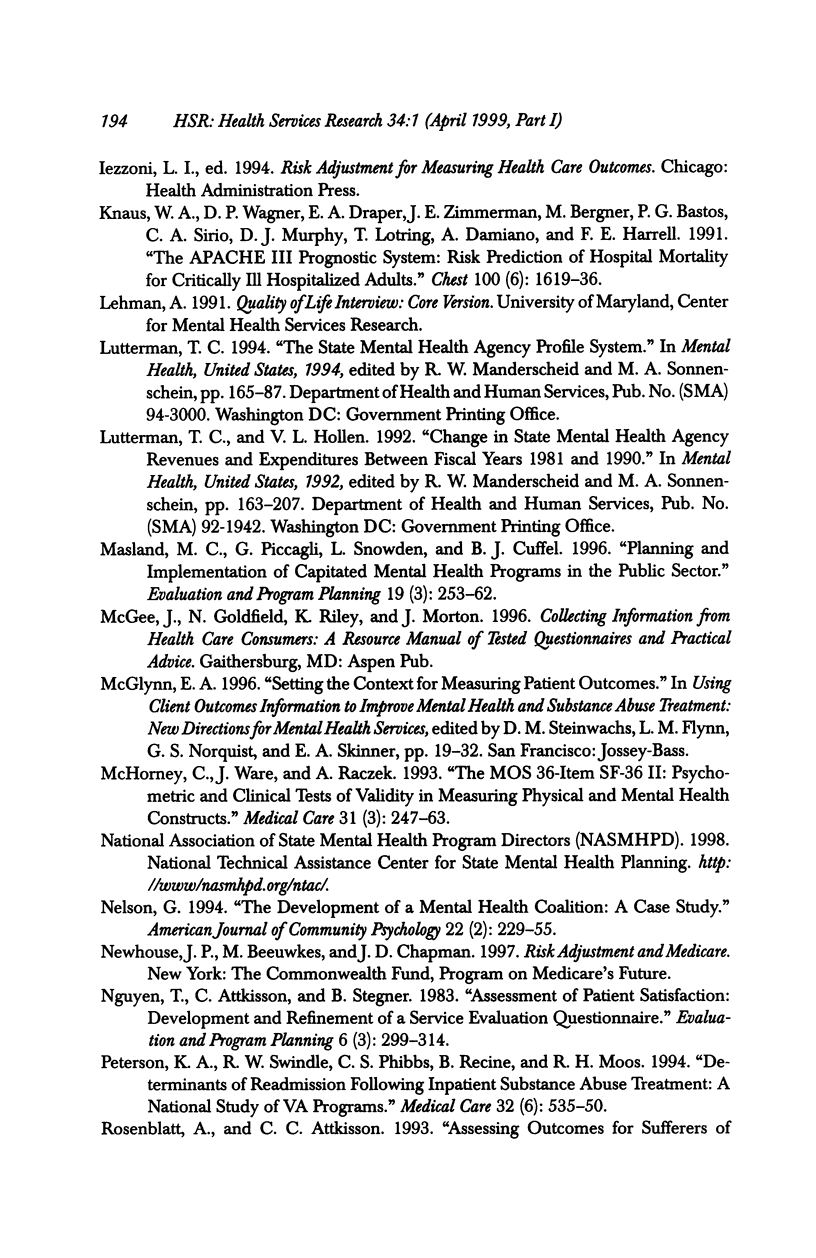

Selected References
These references are in PubMed. This may not be the complete list of references from this article.
- Comtois K. A., Ries R., Armstrong H. E. Case manager ratings of the clinical status of dually diagnosed outpatients. Hosp Community Psychiatry. 1994 Jun;45(6):568–573. doi: 10.1176/ps.45.6.568. [DOI] [PubMed] [Google Scholar]
- DesHarnais S., McMahon L. F., Jr, Wroblewski R. Measuring outcomes of hospital care using multiple risk-adjusted indexes. Health Serv Res. 1991 Oct;26(4):425–445. [PMC free article] [PubMed] [Google Scholar]
- Essock S. M., Goldman H. H. States' embrace of managed mental health care. Health Aff (Millwood) 1995 Fall;14(3):34–49. doi: 10.1377/hlthaff.14.3.34. [DOI] [PubMed] [Google Scholar]
- Gruenberg L., Kaganova E., Hornbrook M. C. Improving the AAPCC (adjusted average per capita cost) with health-status measures from the MCBS (Medicare Current Beneficiary Survey). Health Care Financ Rev. 1996 Spring;17(3):59–75. [PMC free article] [PubMed] [Google Scholar]
- Hornbrook M. C., Goodman M. J. Chronic disease, functional health status, and demographics: a multi-dimensional approach to risk adjustment. Health Serv Res. 1996 Aug;31(3):283–307. [PMC free article] [PubMed] [Google Scholar]
- Knaus W. A., Wagner D. P., Draper E. A., Zimmerman J. E., Bergner M., Bastos P. G., Sirio C. A., Murphy D. J., Lotring T., Damiano A. The APACHE III prognostic system. Risk prediction of hospital mortality for critically ill hospitalized adults. Chest. 1991 Dec;100(6):1619–1636. doi: 10.1378/chest.100.6.1619. [DOI] [PubMed] [Google Scholar]
- McHorney C. A., Ware J. E., Jr, Raczek A. E. The MOS 36-Item Short-Form Health Survey (SF-36): II. Psychometric and clinical tests of validity in measuring physical and mental health constructs. Med Care. 1993 Mar;31(3):247–263. doi: 10.1097/00005650-199303000-00006. [DOI] [PubMed] [Google Scholar]
- Nelson G. The development of a mental health coalition: a case study. Am J Community Psychol. 1994 Apr;22(2):229–255. doi: 10.1007/BF02506864. [DOI] [PubMed] [Google Scholar]
- Nguyen T. D., Attkisson C. C., Stegner B. L. Assessment of patient satisfaction: development and refinement of a service evaluation questionnaire. Eval Program Plann. 1983;6(3-4):299–313. doi: 10.1016/0149-7189(83)90010-1. [DOI] [PubMed] [Google Scholar]
- Peterson K. A., Swindle R. W., Phibbs C. S., Recine B., Moos R. H. Determinants of readmission following inpatient substance abuse treatment: a national study of VA programs. Med Care. 1994 Jun;32(6):535–550. doi: 10.1097/00005650-199406000-00001. [DOI] [PubMed] [Google Scholar]
- Srebnik D., Hendryx M., Stevenson J., Caverly S., Dyck D. G., Cauce A. M. Development of outcome indicators for monitoring the quality of public mental health care. Psychiatr Serv. 1997 Jul;48(7):903–909. doi: 10.1176/ps.48.7.903. [DOI] [PubMed] [Google Scholar]


